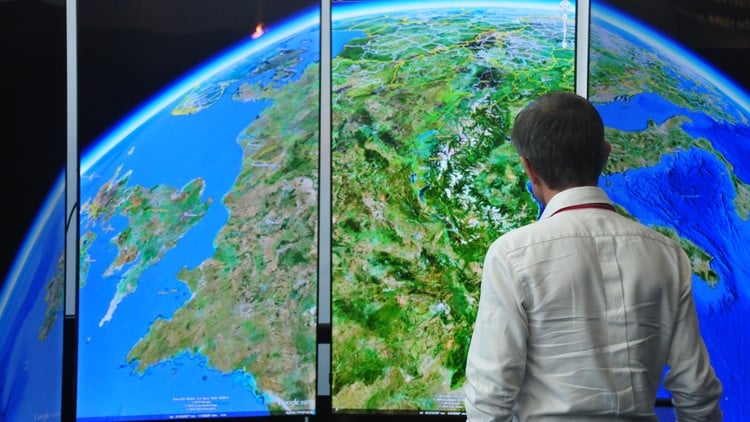Description
Key Topics Covered
- Introduction to Environmental Science
- Overview of environmental science and its interdisciplinary nature.
- The role of environmental science in addressing global environmental challenges.
- Understanding the scientific method and research in environmental studies.
- Ecosystems and Biomes
- Introduction to ecosystems: definitions, components, and functions (producers, consumers, decomposers).
- Types of ecosystems (terrestrial, aquatic) and their characteristics.
- Different biomes of the world: deserts, forests, grasslands, tundra, and marine ecosystems.
- Energy Flow and Nutrient Cycling
- The flow of energy in ecosystems (food chains, food webs, and trophic levels).
- Understanding primary productivity and energy pyramids.
- Biogeochemical cycles: carbon, nitrogen, phosphorus, and water cycles.
- Population Ecology and Biodiversity
- Population dynamics: growth models (exponential and logistic growth), carrying capacity, and limiting factors.
- The concept of biodiversity and its importance for ecosystem health and resilience.
- Threats to biodiversity: habitat loss, pollution, over-exploitation, and climate change.
- Human Impact on the Environment
- The impact of human activities on natural resources and ecosystems.
- Overpopulation, deforestation, urbanization, and agriculture.
- Introduction to sustainability and the concept of the “ecological footprint.”
- Environmental Pollution
- Types of pollution: air, water, soil, and noise pollution.
- Sources and effects of pollution on ecosystems and human health.
- Methods for pollution control and waste management (recycling, waste treatment, pollution prevention).
- Climate Change and Global Warming
- The science of climate change: greenhouse gases, global warming, and climate models.
- Effects of climate change on ecosystems, weather patterns, and human societies.
- Mitigation and adaptation strategies for addressing climate change.
- Environmental Policy and Laws
- Overview of global and national environmental policies, agreements, and laws (e.g., Kyoto Protocol, Paris Agreement).
- Environmental protection agencies and their role (e.g., EPA).
- The role of governments, NGOs, and international organizations in environmental conservation.
- Sustainable Development and Conservation
- Principles of sustainable development and the balance between economic growth, environmental protection, and social equity.
- Conservation efforts for protecting endangered species and habitats.
- Renewable energy, sustainable agriculture, and eco-friendly technologies.
- Environmental Ethics and Advocacy
- Introduction to environmental ethics: anthropocentrism vs. ecocentrism, deep ecology, and biocentrism.
- The role of activism, environmental organizations, and the public in promoting environmental change.
- Strategies for environmental advocacy, policy change, and public education.
Course Objectives
By the end of this course, students will be able to:
- Understand the Basics of Environmental Science
Gain a foundational understanding of the major concepts, principles, and challenges in environmental science. - Explore Ecosystems and Biodiversity
Comprehend the structure and function of ecosystems, and the importance of biodiversity for ecological balance. - Analyze Energy Flow and Nutrient Cycles
Learn how energy flows through ecosystems and understand the processes that recycle nutrients and maintain ecosystem health. - Understand Human Impacts on the Environment
Identify and assess the environmental impacts of human activities, including overpopulation, deforestation, pollution, and industrialization. - Examine Environmental Pollution and Its Effects
Explore different types of pollution, their causes and effects, and the methods for mitigating environmental degradation. - Learn the Science of Climate Change
Understand the science behind climate change, its global implications, and strategies for mitigation and adaptation. - Study Environmental Policies and Laws
Gain knowledge of the key environmental policies, regulations, and laws that shape global and local environmental protection efforts. - Promote Sustainable Development
Learn the principles of sustainable development and how they can be applied to ensure the long-term health of the planet and its resources. - Evaluate Environmental Ethics and Advocacy
Understand different environmental ethical perspectives and explore the role of advocacy, activism, and policy changes in environmental protection. - Foster a Deeper Appreciation for Environmental Conservation
Develop an understanding of the importance of conservation and how individuals and communities can contribute to environmental protection and sustainability.







Rukaiya –
“This online course was an incredibly informative and engaging introduction to environmental science. The course content was comprehensive, covering a wide range of topics in an accessible and engaging way. The instructor’s passion for the subject was evident, and their expertise shone through in their delivery. The course materials were well-organized and user-friendly, making it easy to navigate and absorb the information. I highly recommend this course to anyone who wants to gain a solid foundation in environmental science.”
Babagana –
“This online course has been an invaluable introduction to environmental science. The content was well-organized and comprehensive, providing an in-depth understanding of the fundamental principles and concepts. The interactive modules, quizzes, and assignments allowed for a personalized and engaging learning experience. I highly recommend this course to anyone looking to gain a solid foundation in environmental science, whether for academic or personal enrichment.”
Kayode –
“The ‘Introduction to Environmental Science’ online course exceeded my expectations. The well-structured modules and interactive simulations provided an engaging and comprehensive overview of environmental issues and their scientific underpinnings. The instructor’s clear explanations and real-world examples made complex concepts easy to grasp. I particularly appreciated the emphasis on practical solutions and the importance of individual and collective action. This course not only broadened my knowledge but also ignited a passion for environmental stewardship within me.”
Ekaette –
“The ‘Introduction to Environmental Science’ online course has been an incredibly enriching experience. Its comprehensive and well-structured content provided a thorough foundation in the fundamentals of environmental science, covering topics ranging from Earth’s systems to the impacts of human activities on the environment. The interactive modules, engaging discussions, and thought-provoking assignments fostered a deep understanding of the complex issues facing our planet. I highly recommend this course to anyone interested in gaining a solid introduction to this field and becoming an informed advocate for environmental sustainability.”